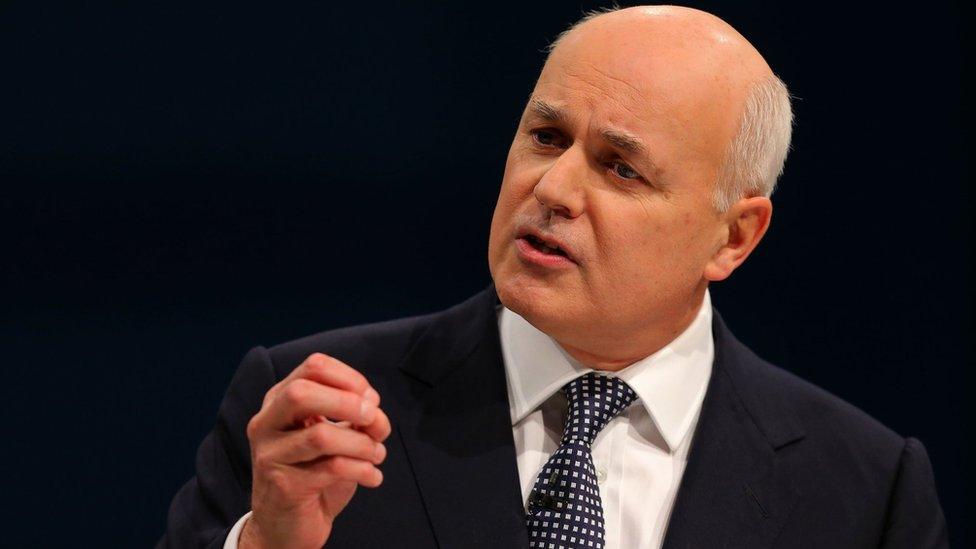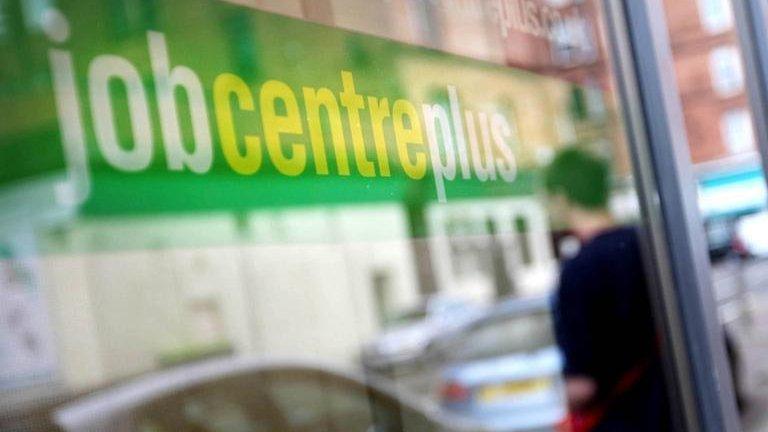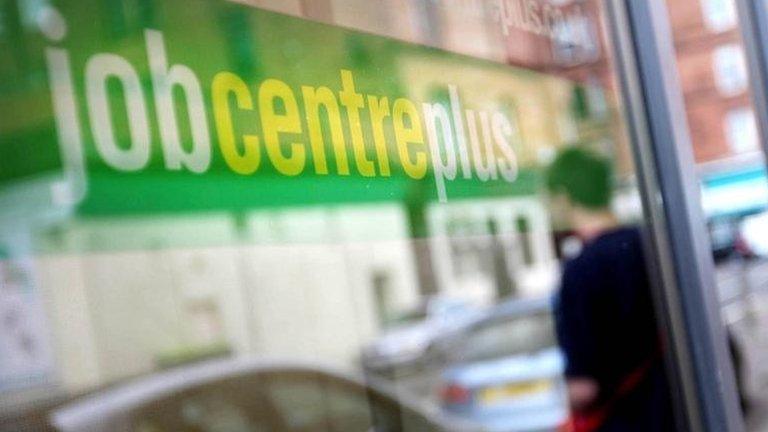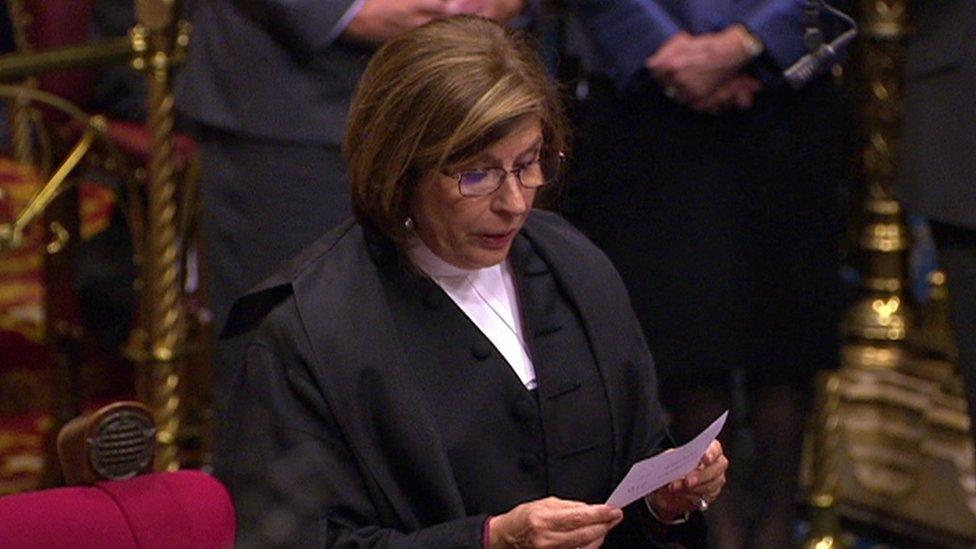Universal Credit: Iain Duncan Smith resists Treasury cuts
- Published

Work and Pensions Secretary Iain Duncan Smith is resisting Treasury efforts to make the new Universal Credit benefit less generous, the BBC understands.
Chancellor George Osborne is seeking ways to save £4bn after the House of Lords rejected working tax credit cuts.
Treasury officials are thought to be considering increasing the penalties faced by claimants who take extra work.
An ally of Mr Duncan Smith has told the BBC he has not threatened to resign but that it was a "red line" for him.
A spokesman for Mr Duncan Smith said: "No decisions have yet been made about savings."
Foreign Secretary Philip Hammond also played down reports Mr Duncan Smith is on the brink of resignation over the issue.
Asked by Andrew Marr if this was the case, he said: "I don't think so.
"We all have robust discussions with the chancellor. That's the nature of the way government works.
"Of course people fight their corner and of course people seek to sway the agenda in one way or another.
"But I think every single one of my cabinet colleagues would agree that the number one task in front of us is eliminating the deficit and getting Britain's economy on an even keel for the future."
Mr Osborne is looking for other areas in which to make more than £4bn in savings.
Credit threshold
Universal Credit is a new type of benefit designed to support people who are on a low income or out of work. It is replacing six existing benefits - income-based jobseeker's allowance, income-related employment and support allowance, income support, child tax credit, working tax credit, and housing benefit.
It is being rolled out across the UK.
At its heart is the principle that those taking extra work do not instantly see all their extra income clawed back in lost benefits, meaning it is always meant to be better to be in work.
Currently, for every extra pound earned over a set threshold, Universal Credit claimants lose 65p in benefit.
But treasury officials are exploring raising the so-called "taper rate" to 75p in the pound to gather about £1.5bn to £2bn. Work and Pensions officials claim such an increase would tip the balance and put people off taking extra work.
It is understood work and pensions officials also believe any attempt to increase the taper rate would fatally undermine universal credit, which is designed to reassure people that they are always better off working.
Alternative options
Shadow chancellor John McDonnell said Mr Osborne "clearly thinks this plan would muddy the waters, by hiding the cuts in the black-box of Universal Credit.
He added: "However, the reality is it would simply create yet another work penalty for low and middle paid families, which is what caused this huge cross-party calamity in the first place."
Mr McDonnell also called for a "full reversal of the chancellor's plans to take £1,350 a year from over three million working families".
Speaking to the BBC, the ally of Mr Duncan-Smith, who did not want to be named, said: "Since the House of Lords vote there have been several top-level government conversations.
"But Iain is clear that increasing the taper rate of universal credit from 65p to 75p for every pound earned over the limit, is not where you should go to find the money that would have come from tax credit savings."
The work and pensions secretary is said to have suggested alternative options to find savings.
The ally pointed to a paper published this week, external for the Centre for Social Justice by a former aide to Mr Duncan Smith, Baroness Philippa Stroud, in which she said that if the chancellor was looking for savings, he should not touch the Universal Credit taper rate.
A treasury spokesman said no comment would be made ahead of the Autumn Statement later this month.
- Published15 February 2015

- Published6 November 2015

- Published15 February 2015

- Published26 October 2015
